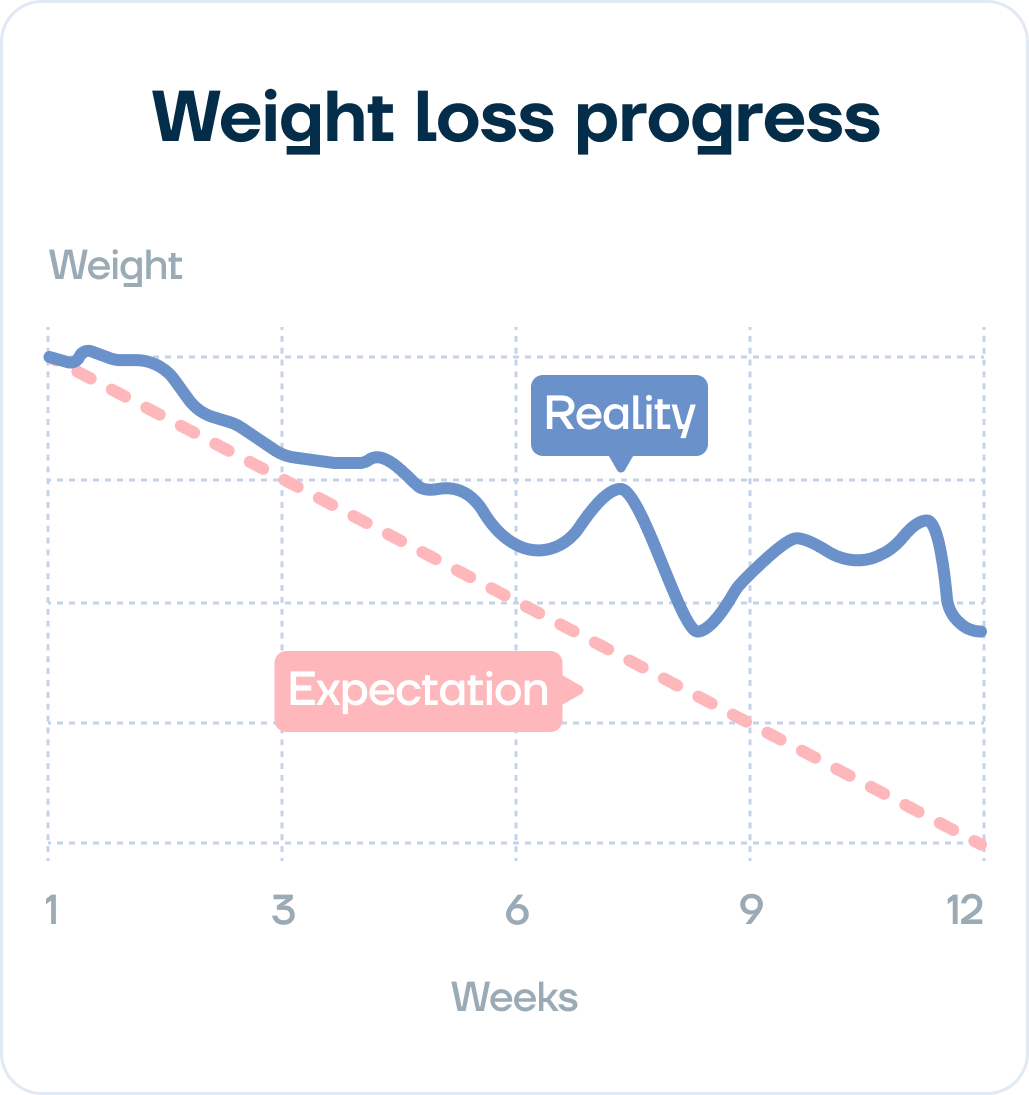Why Does Weight Loss Plateau Happen
Weight loss plateau happens when the body adjusts to lower calorie intake and slows metabolism. This can occur when someone has been on a weight loss journey for a while and their body adapts to the changes.
When the body senses a decrease in food intake, it may go into “starvation mode” and conserve energy, making it harder to lose weight. Additionally, hormonal changes and decreased muscle mass can also contribute to a weight loss plateau. Understanding the reasons behind a weight loss plateau is crucial for making necessary adjustments to continue progress towards weight loss goals.
We will explore the factors that contribute to a weight loss plateau and provide effective strategies to overcome it.
Introduction To Weight Loss Plateau
Weight loss plateau happens when a person’s body adapts to changes in diet and exercise. The concept of hitting a plateau is common in the weight loss journey. Initially, people experience significant weight loss, but then the progress slows down. This can be frustrating, but it’s a natural phase of the weight loss process. Understanding why it happens and how to overcome it is crucial for achieving long-term success. It’s important to adjust your approach by modifying your diet, exercise routine, and lifestyle to break through the plateau. By making small, sustainable changes, it is possible to reignite your weight loss progress and continue on your journey towards a healthier lifestyle.
Biological Factors
Weight loss plateaus can occur due to metabolic adaptation, where the body adjusts to the decrease in calorie intake. When you start a weight loss journey, your body initially responds by burning more calories to meet the energy demand. However, as you continue to lose weight, your metabolism may slow down as a survival mechanism, making it harder to shed those extra pounds.
Hormonal changes can also contribute to weight loss plateaus. Hormones like leptin, which regulates hunger and satiety, may decrease as you lose weight, leading to increased hunger and decreased energy expenditure. Additionally, changes in thyroid hormone levels can affect metabolism, potentially causing weight loss to stall.
Psychological Aspects
Weight loss plateau happens when motivation declines and complacency with progress sets in. People may become demotivated when they don’t see immediate results, leading to a lack of drive to continue their weight loss journey. Additionally, when individuals start feeling satisfied with their progress, they may become complacent and stop pushing themselves to reach their goals. This psychological aspect can hinder further weight loss and make it difficult to break through the plateau. It’s important to stay motivated and avoid becoming too comfortable with current achievements to overcome this challenge.
:max_bytes(150000):strip_icc()/VWHealth-When-can-you-expect-a-GLP-1-plateau-edit-2-2d4c40d3db4a41a8b215e1f728a5ca74.jpg)
Credit: www.verywellhealth.com
Dietary Influences
Weight loss plateaus can occur due to misestimating calorie intake. Hidden calories in ‘healthy’ foods can hinder progress.
Physical Activity And Exercise
Physical activity and exercise are important factors in achieving weight loss goals. However, decreased energy expenditure can occur as the body adapts to routine exercises. This can lead to a weight loss plateau, where the body stops losing weight despite continued efforts to exercise and maintain a healthy diet. To overcome this, it is important to vary exercise routines and increase the intensity or duration of workouts. Additionally, incorporating strength training can help increase muscle mass and boost metabolism. It is also important to monitor calorie intake and make sure it aligns with weight loss goals. By making these adjustments, individuals can overcome weight loss plateaus and continue on their journey towards a healthier lifestyle.
Breaking Through The Plateau
Plateau is a common occurrence in weight loss journey. To break through the plateau, adjusting caloric intake and varying exercise routines can be helpful. It is important to re-evaluate the daily caloric intake and make changes accordingly. Reducing the daily intake by 100-200 calories can make a difference. Additionally, adding variety to the exercise routine can shock the body into burning more calories. Try new exercises or increase the intensity of the existing ones. Also, incorporating strength training can help build muscle which in turn boosts metabolism. Breaking through the plateau requires patience and perseverance. Consistency is key to achieving weight loss goals.
Lifestyle Considerations
Weight loss plateaus can occur due to various lifestyle considerations such as inadequate calorie intake, lack of exercise diversity, and slowed metabolism. It’s important to address these factors to break through the plateau and continue making progress towards your weight loss goals.
| Sleep and stress: Getting enough sleep and managing stress levels are crucial for weight loss. |
| Hydration and alcohol consumption: Staying hydrated and limiting alcohol intake can impact weight loss progress. |

Credit: www.secondnature.io
Long-term Strategies For Weight Management
Weight loss plateaus are a common occurrence during a weight loss journey. To overcome this, it is important to have long-term strategies for weight management. Setting realistic goals is crucial to avoid disappointment and frustration. Regularly monitoring progress allows you to make necessary adjustments to your plan. It helps you stay motivated and on track. Assessing your eating habits, physical activity, and lifestyle choices can help identify areas where improvements can be made. Implementing small changes gradually can lead to sustainable weight loss. Incorporating a balanced diet, regular exercise, and stress management techniques are key components of successful long-term weight management. Remember, weight loss is a journey and not a quick fix. Stay dedicated and patient, and you will achieve your desired results.

Credit: www.medicalnewstoday.com
Conclusion
As we’ve explored, weight loss plateaus occur due to various factors. By understanding these reasons, you can overcome challenges and continue progress on your journey. Remember to stay consistent, adapt your strategies, and seek support when needed to break through plateaus effectively.
Stay motivated and focused!